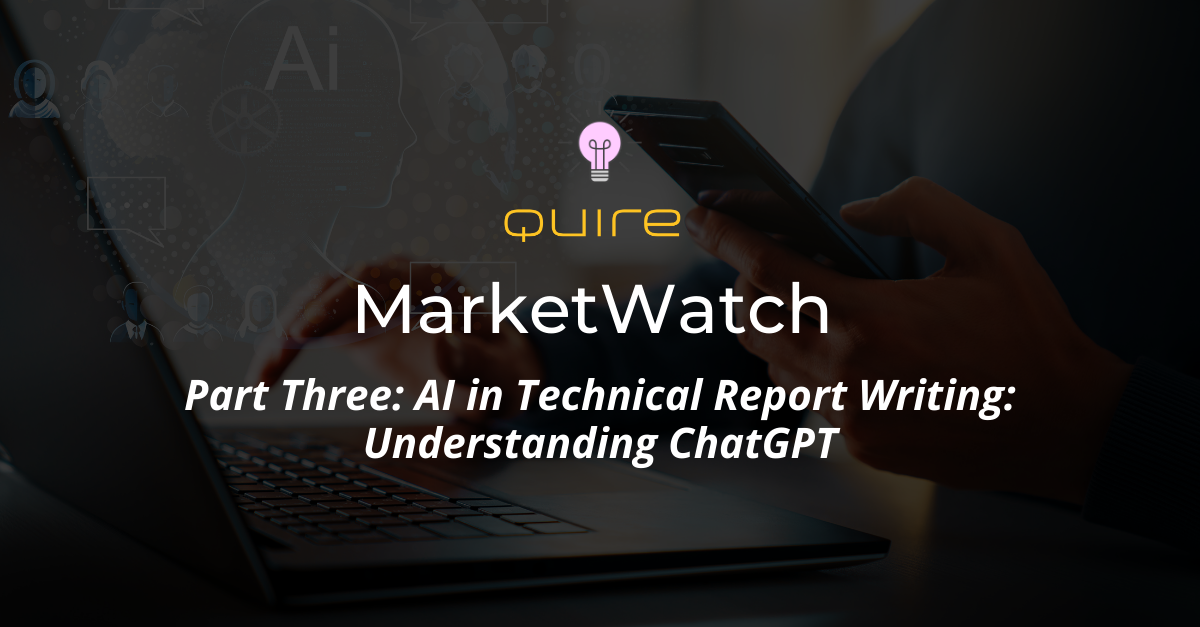For years, Quire has analyzed tens of thousands of Reports from dozens of market lines generated all around the world. As Quire works to provide productivity-enhancing solutions for Clients, we're fully embedded in Technical Report Writing, enriching our understanding of the industry and our Clients' workflows. We've created MarketWatch as a way to share industry trends and insightful takeaways with report-writing professionals both in and outside the Quire solution.
ChatGPT presents exciting potential as a tool for enhancing efficiency and accuracy within the technical Report writing field. However, it is crucial not to view these technologies as a replacement but rather as an augmentation to human expertise. The integration of Artificial Intelligence into existing workflows allows individuals to allocate more time for higher-level tasks while enabling machines to handle repetitive jobs like proofreading. This collaborative approach can lead to better accuracy overall, resulting in increased productivity levels and high-quality Reports.
By embracing AI's potential to complement human capabilities rather than replace them, professionals in the technical Report writing market can harness the benefits of this technology while mitigating its challenges. As we look ahead, the future of AI in technical Report writing lies in striking a balance between leveraging cutting-edge technology and preserving the value of human insight, ultimately leading to a more efficient and effective industry.
Download the MarketWatch to learn more
